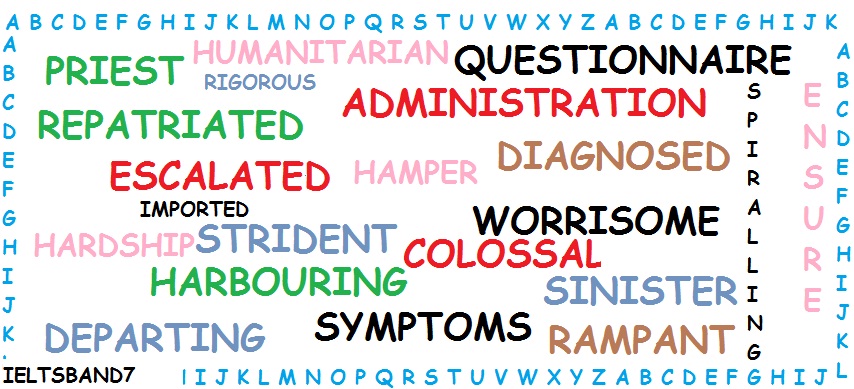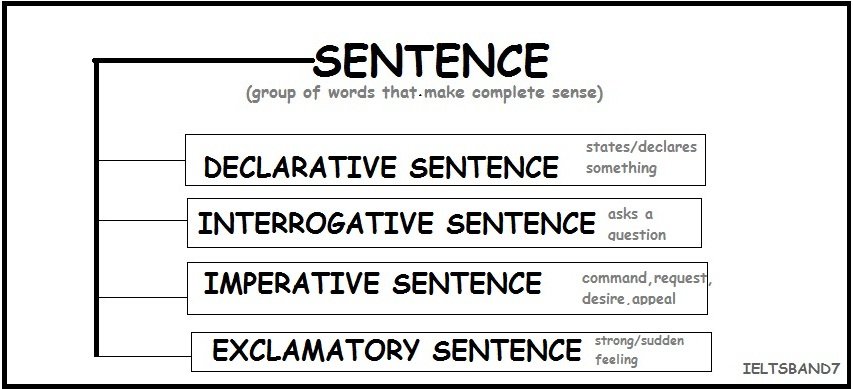KEEPING EBOLA AT BAY
There are 21 highlighted words in the passage below. Find out if you know their meaning and mark yourself on 21.
Concerns over Ebola have escalated after the United States and Spain reported their first cases of the disease diagnosed within their borders. A traveler from Liberia, a west-African nation where the disease is rampant, was found to be harbouring the disease causing virus several days after arriving in Dallas. In the case of Spain, a hospital nurse involved in the care of a sick priest repatriated from Sierra Leone, another west-African nation where the outbreak is continuing, has caught the virus. Given Ebola’s sinister reputation, there have been strident demands in the US , including congress, for measures to reduce the risk of infection being brought into the country. In response. American officials have said that measures to screen arriving airline passengers would be put in place. As it is, countries where Ebola transmission is ongoing are expected to carry out exit screening of all persons departing from their airports, seaports and major land crossings. Using temperature monitoring systems and a questionnaire, the three west African nations of guinea, Liberia and Sierra Leone, which are the worst affected, have checked about 36,000 airlines passengers in the past two months. Only 74 of them had fever and three displayed other worrisome symptoms, but none of those individuals turned out to have Ebola, says US health officials. It remains to be seen if screening passengers on arrival will actually reduce of risk of the virus getting in. those infected can take between two and 21 days to show symptoms of the disease, and, as happened with Liberian who was diagnosed in Dallas, that may not occur before they set out on their journey.
The obama administration has refused to entertain ideas of blocking the entry of those coming from the affected countries. If the US were to adopt such extreme steps, other nations will doubtless follow suit. As it is, the outbreak has been a colossal calamity for three of the world’s poorest nations, requiring a massive international response to the resulting humanitarian crisis. Isolating those countries for any extended period will only add to their hardships and hamper the ongoing international efforts to provide assistance. India and other countries untouched by Ebola must, however, be ready to response plans should an infected person turn up on their shores. The ability to quickly diagnose and isolate such cases, ensure rigorous infection control in healthcare settings, and track down and monitor an infected individual’s contact are essential. Nigeria and Senegal, west African countries that saw imported cases, were able to stop the virus from spiralling out of control. Good planning holds the key to getting the better of Ebola.
The passage has been taken from “The Hindu”, editorial section dated: Tuesday, October 9, 2014.

vocabulary words
-
ESCALATED
-
It means to make something either greater or worse or more serious etc. Herein the concerns over Ebola have escalated, meaning that the concerns have become more serious.
-
DIAGNOSED
-
It means to exactly tell the reason of the disease or the problem. When it says that US and Spain claimed that they were the first to diagnose it within their borders, it means they were the first to find out the reason behind the disease.
-
RAMPANT
-
It means to exist or spread everywhere in an uncontrollable way. The meaning is obvious, the disease is spreading in Liberia in a way that is not controllable.
-
HARBOURING
-
Harbouring has many meanings. The one used here, means to contain something and allow it to develop. So, the traveler from Liberia was roaming about with the disease without getting it checked and therefore allowing it to develop within the body.
-
PRIEST
-
Priest is a person who is qualified to perform religious duties and ceremonies in Roman Catholic, Anglican and Orthodox Churches.(definition by Oxford Dictionary).
-
REPATRIATED
-
Repatriated means to bring or send back someday to their own country. Here, it means the nurse was brought back from Sierra Leone to her native country i.e. spain.
-
SINISTER
-
Sinister is anything that seems evil or devil. Here the outbreak of Ebola is said to be something quite devilish, after all it caused a lot of deaths.
-
STRIDENT
-
Strident means being aggressive and determined. So, in the passage, it means that people are demanding measures to reduce the infection, very aggressively and with full of determination.
-
DEPARTING
-
Departing means leaving a place. In the text, it means every person who is departing i.e. leaving from airports, seaports is being screened thoroughly.
-
QUESTIONNAIRE
-
A questionnaire is a collection of question that need to be answered by people so that some information can be collected. In the context, the West African countries are asking people different questions to get information from the passengers.
-
WORRISOME
-
Worrisome is anything that makes you worry. So, when it says that some have showed worrisome symptoms, it means the symptoms have caused worry. It could be because they are quite serious.
-
SYMPTOMS
-
Symptom is a sign that explains something bad. You can even understand it as, a change in the body or mind that shows you are not healthy. Herein it simply means that it takes 21 days to see any signs of the disease.
-
ADMINISTRATION
-
Administration has many meanings associated with it. The one that is used here is :” the government of a country”. So, in the text it means that the government of obama has refused to entertain any ideas of …. .
-
COLOSSAL
-
Colossal means extremely large. So, when it says “the outbreak has been a colossal calamity”, it means it has been extremely large.
-
HUMANITARIAN
-
Humanitarian is concerned with reducing suffering and improving conditions that people live in(definition from the oxford dictionary). When the writer says, “resulting humanitarian crisis”, it means the condition of people living has deteriorated.
-
HARDSHIP
-
Hardship refers to a situation that is tough usually because you don’t have the basic amenities i.e. water, clothes, food etc. Adding it to their hardship means it will make difficult things more difficult for them.
-
HAMPER
-
To hamper means, to prevent somebody to easily doing or achieving something. “isolating countries will hamper international efforts, means if isolation takes place, the efforts would either be stopped or it would become difficult to do what they are doing.
-
ASSISTANCE
-
It simply means to help or support. So, the sentence,” hamper the ongoing effort to provide assistance”, means to create problems to either stop or make it difficult to provide help.
-
ENSURE
-
Ensure means to make sure that something definitely happens. “Ensure rigorous infection control means”, to make it sure that infection control measures definitely take place.
-
RIGOROUS
-
If something is done carefully and with lot of attention, it means it is done rigorously. In the context it means that the infection control measures must take place with lot of attention, after all the disease is going viral at a high speed.
-
IMPORTED
-
Import has lot of meaning. The one used here is: to bring in from a foreign country. Herein it means, the cases of people who were not part of their country.
-
SPIRALLING
-
As used in here, spiralling means to increase rapidly. So, what it means is that the African countries that saw cases of imported people, were able to stop virus from increasing rapidly.
To those who got more than 17 correct, you already are good in vocabulary. Others don’t loose hope, even if you have 0 correct answers, remember, it is not the smartest who wins the war, the war is won by the one who works the hardest.
Learn Vocabulary Better with IELTS BAND 7
WHO ARE WE?



